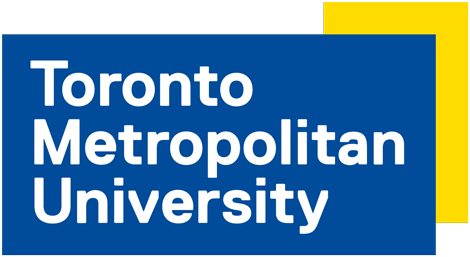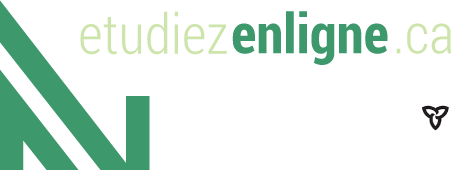Food Security
Description
Support our communities with a Food Security certificate
Food security is essential for everyone’s health and well-being. But there’s a long way to go in improving global food security for all, due to social and economic inequality, conflict, climate change, and environmental degradation.
That’s why there is a rapidly growing need for passionate, qualified professionals to create and implement food security programs and policies to help achieve food security locally, nationally and globally. This is why The Chang School is proud to offer Canada’s only online certificate program in food security.
This program was developed with the Centre for Studies in Food Security to provide professional food-security accreditation and help raise awareness of food security issues across a wide range of professional sectors.
Many of our graduates have found the program invaluable in making career moves into sectors where food security expertise is needed. There’s a wide variety of opportunities available for trained food security professionals, including in government, local and international community development, the nonprofit sector, food-system planning, regional health authorities, or even the expanding urban agriculture sector.
Our food security certificate is online, so you can complete it at your own pace. Coursework covers many different topics, both local and global, including food justice, gender and food security, food systems, climate change and food security, the politics of food, health and food security, urban food security, Indigenous food systems in Canada, and food-security research. The certificate also offers courses in urban agriculture.
The world needs more advocates to advance food justice and battle global food insecurity. Are you ready to step up to help create food-secure communities?
Who should take this Food Security certificate?
- You need a degree accreditation in food security to advance your career professionally or academically
- You’re a working professional with food-security experience in public health, social work, agriculture, international development, or the food sector and want to broaden your knowledge and skill set to expand their career opportunities
- You’re a degree graduate looking for a stepping stone from undergraduate studies to a master’s or PhD program in food security or related studies
- You’re passionate about the subject and would like to transition to careers in this field
- You’re a practitioner working locally or regionally on food security in your community
Admission Criteria:
Required:
- An undergraduate degree OR
- 5 years of professional experience in a field relevant to food security work OR
- A 3-year Baccalaureate study with a clear academic standing (at least a C average or GPA of 1.67)
Admission Interview/Placement Assessment
If you wish to apply to register for the Certificate in Food Security, contact the Academic Coordinator, Reg Noble, who will assess whether you are eligible and answer any questions you might have about the program. If you’re interested in taking individual courses, Toronto Metropolitan University’s general eligibility rules apply.
Certificate Requirements
- 3 required courses
- 3 electives
- Complete a minimum of 50 percent of the courses through The Chang School
- Successfully complete your program requirements within four years of registering in the certificate
- Achieve a cumulative grade point average (GPA) 1.67+
To graduate, you must successfully complete, within your official time span, the requirements from the year you registered in the program.
Required Courses
You may only select one of CFNP 250 or CFNY 404.
- CFNP 250 Markets, Food Systems/Food Policy
- CFNY 403 Food Security Concepts and Principles
- CFNY 404 Food Policy and Programs for Food Security
- CFNY 405 Applied Research Methods and Evaluation
Electives (select 3)
- CCLD 231 Families in Canadian Context I
- CFND 401 Social and Cultural Dimensions of Food
- CFNF 100 Families and Health
- CFNN 100 Nutrition and Health
- CFNN 111 Nutrition for your Health
- CFNP 400 Interprofessional Placement
- CFNY 400 Selected Topics in Food Security
- CFNY 407 Community Development and Food Security
- CFNY 408 Urban Food Security
- CFNY 409 Gender and Food Security
- CFNY 510 Indigenous Food Systems in Canada
- CINT 912 Community Development: International Field Experience
- CSOC 808 Sociology of Food and Eating
- CVFN 410 Understanding Urban Agriculture
- CVFN 411 Dimensions of Urban Agriculture
- CVFN 412 Practicing Urban Agriculture
- CVFN 413 Urban Agriculture Policy-Making
You may only select one of CFND 401 or CSOC 808.
You may only select one of CFNF 100 or CCLD 231.
You may only select one of CFNN 100 or CFNN 111.
- CFND 401 Social and Cultural Dimensions of Food
You may only select one of CFNF 100 or CCLD 231.
- CFNF 100 Families and Health
You may only select one of CFNN 100 or CFNN 111.
- CFNN 100 Nutrition and Health
Related Courses
Overview

- Institution: Toronto Metropolitan University (Ryerson)
- Program type: Certificat
- Language: English
- Program Code:
- Delivery Method: Entièrement en ligne/à distance
Disclaimer:
Check with the institution regarding start/end dates, prices, and delivery method. These may vary according to program, section, and/or semester.
Check with the institution regarding start/end dates, prices, and delivery method. These may vary according to program, section, and/or semester.
